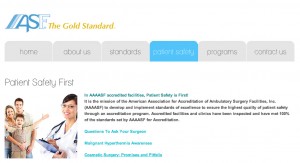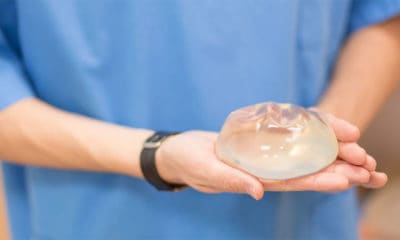
As much as we all want great, fast results from cosmetic surgery, making sure you have chosen the right surgeon who performs in the safest of facilities is of utmost importance. Dr. Geoffrey Keyes of Los Angeles knows exactly how safety comes about. He explains the importance facility accreditation when determining whether or not a plastic surgeon is capable of providing the safest environment and experience for patients.
By Geoffrey Keyes, MD
and Chris Knisley
ThePlasticSurgeryChannel.com
 Defining safety
Defining safety
One aspect of cosmetic surgery often forgotten by patients is safety. “Surgery is serious business,” says Dr. Keyes. “People think because they’re having cosmetic surgery that it isn’t as serious, but it is. Outpatient surgery is serious business. Patients really need to know what to look for when evaluating a safe facility.”
Fortunately for patients, various associations exist that give accreditation to doctor-owned/managed hospitals and provide the information online. Remembering to ask your potential surgeon about their facility is extremely important to your safety and results.
How do you know if your surgeon’s facility is safe?

A variety of associations license facilities above a standard to guarantee a strong foundation for patient safety. One such association is the American Association for Accreditation of Ambulatory Surgery Facilities, or “AAAASF” for short. AAAASF has been inspecting and accrediting facilities for over 30 years. “You should go on the web and look up outpatient surgery accrediting association,” says Keyes. “When you call the doctor, you can ask where they operate, if it’s accredited and which association is providing the accreditation.”
Dr. Keyes notes that asking the right questions is very easy, and the consequences if you don’t ask could be severe. “It’s very simple. Just because a doctor is board certified doesn’t make them a good surgeon. And just because a doctor has his own small hospital, doesn’t mean he knows how to manage it. If you don’t research the background of the surgeon and where you’re having surgery, you could be asking for a potential lifetime of misery.”

 Defining safety
Defining safety












Facebook
Twitter
Instagram
YouTube
RSS